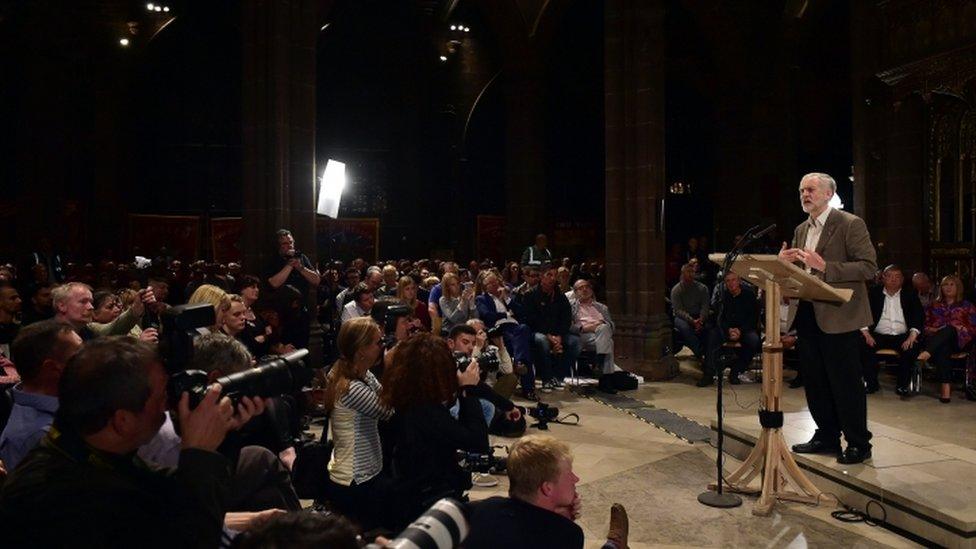Labour faces big ask to win in 2020
- Published

Margaret Beckett is a consummate professional. What jumps out from her report into what went wrong for the Labour Party at the general election is just how careful she has been not to offend.
She stops short of saying baldly that Ed Miliband wasn't really up to it. She stops short of giving succour to Jeremy Corbyn's detractors by saying the party wasn't too left wing in 2015.
She spends a lot of time laying out how big an ask it was for Labour to get back into power in 2015 after only five years in opposition.
What she does not shy away from though is perhaps what will be hardest for the party's supporters to read - how difficult the 2015 defeat makes it the next time.
The former foreign secretary says that Labour needs to win 94 more seats to get a majority of two in 2020.
That's on the current boundaries, which are likely to change in the Conservatives' favour. As she notes, there are only 24 Tory constituencies with a majority of less than 3,000 over Labour. And in Scotland, there are only two seats where Labour is less than 5,000 votes behind the SNP.
And it's not just the numbers but the way Mrs Beckett notes society is changing that may make Labour's job much harder. She explains that by 2020, there will be 1.5 million more pensioners, who are more likely to vote Conservative, who could "automatically gain 570,000" votes.
And if Labour can't make up any ground in Scotland, the report says Labour would need a 12.5% swing from the Tories in England and Wales. Of course, it's still four years away and 2020 will, Mrs Beckett says, be another complicated election.
But whatever went wrong the last time, the next time will be a mammoth a task for the new leader, Jeremy Corbyn, who is hugely popular among his own huge band of supporters, but who is yet to convince many of his own MPs.
And, as all politicians know, getting your own party on side is not nearly enough.
- Published19 January 2016